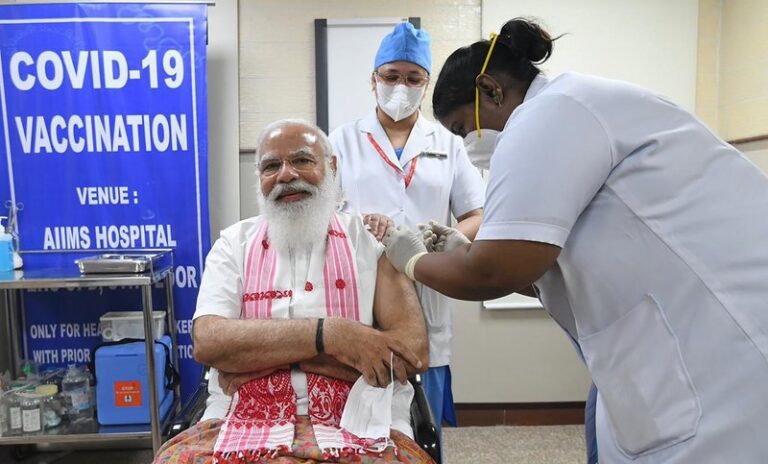
(AP) — India is expanding its COVID-19 vaccination drive beyond health care and front-line workers, offering the shots to older people and those with medical conditions that put them at risk. Among the first to be inoculated on Monday was Prime Minister Narendra Modi.
Those now eligible to be vaccinated include people older than 60, as well as those over 45 who have ailments such as heart disease or diabetes that make them vulnerable to serious COVID-19 illness. The shots will be given for free at government hospitals and will also be sold at over 10,000 private hospitals at a fixed price of 250 rupees, or $3.40, per shot.
Modi, who is 70, got the shot at New Delhi’s All India Institute of Medical Science. He appealed for all to get vaccinated, tweeting afterward, “together, let us make India COVID-19 free!”
The country of nearly 1.4 billion people started one of the world’s largest vaccination drives in January, but the rollout has been sluggish.
New coronavirus infections are increasing again after months of consistent decline, and scientists have detected worrisome variants of the virus that they fear could hasten infections or render vaccines or treatments less useful. Vaccinating more people is a priority, with India’s Health Ministry on Sunday urging states “not to lower their guard” and “squander away the gains of the collective hard work of the last year.”
India has recorded more than 11 million cases, second in the world behind the United States, with over 157,000 deaths in the country from COVID-19.
Even though India is home to the world’s largest vaccine makers and has one of the biggest immunization programs, things haven’t gone according to plan. Of the 10 million health care workers that the government had initially wanted to immunize, only 6.6 million have gotten the first shot and 2.4 million have gotten both. Of its estimated 20 million front-line workers like police or sanitation workers, only 5.1 million have been vaccinated so far.
Dr. Gagangdeep Kang, an infectious diseases expert at Christian Medical College Vellore in southern India, said the hesitancy by health workers to be vaccinated highlights the paucity of information available about the vaccines. If health workers are reticent, “you seriously think that the common public is going to walk up for the vaccine?” she said.






